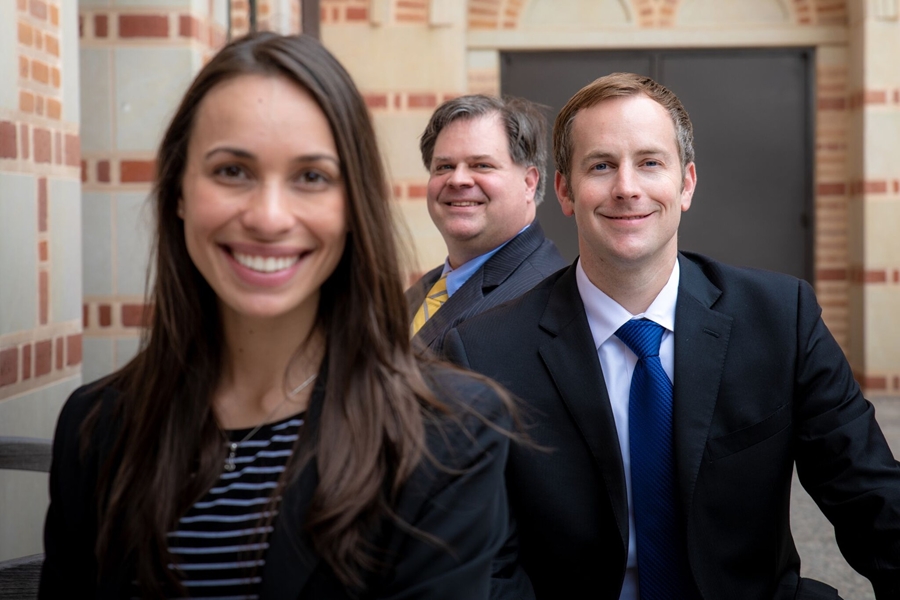
FAYETTEVILLE, Ark. — Medical device company Lapovations took home the Best Life Science Startup Prize, the Women’s Health and Wellness Award, and second place overall at the elite Rice University Business Plan Competition. The company received $100,000 in investment and $50,000 in cash prizes, bringing their total winnings to more than $250,000 in national startup competitions this year.
Lapovations is developing a platform of innovative products that improve minimally invasive surgery.
“Lapovations is the kind of company that has the potential to create high-wage jobs and bring visibility to the region as an engine of innovation in the life sciences,” said Carol Reeves, U of A associate vice chancellor for entrepreneurship. “Just getting into Rice is a signifier of the team’s talent and of the promise of their company, so I’m especially proud to see them emerge, deservedly so, with cash and investments to fuel their launch.”
The company also took first place in the recent Baylor University New Venture Competition, SXSW Pitch Texas, Stu Clark Investment Competition at the University of Manitoba, and the Brown-Forman Cardinal Challenge at the University of Louisville. They took second place at the Ivey Business Plan Competition at Western University in Canada. The team’s winnings are being used to continue the company’s research and development as they prepare to bring their first product to market later this year.
The startup is led by University of Arkansas graduate students in the Biomedical Engineering Department of the College of Engineering and the Sam M. Walton College of Business.
“The Rice competition brings grueling competition and requires many months of preparation, but it is not just an academic exercise,” said Jared Greer, CEO of Lapovations. “It’s an opportunity to gain attention and relationships from angel investors and venture capitalists, to meet potential board members and stay in touch with technological advances across sectors. All that preparation was definitely worth it.”
Greer is a master’s student in biomedical engineering at the U of A. His teammates are Flavia Araujo and Michael Dunavant, both M.B.A. students in the Sam M. Walton College of Business. The three students met in the graduate-level New Venture Development course taught by Reeves, whose teams have won more national business competitions than any other institution since 2009.
Lapovations competed in the final round of the Rice competition with two graduate student teams from MIT, and one each from Columbia University, Harvard University, and the Birla Institute of Technology and Science, Pilani – Hyderabad Campus in India.
Just 42 of the 385 teams that applied to the competition were invited to compete in Houston. The University of Arkansas brought two teams to the competition, including UChooze Lunchbox, a venture focused on bringing healthy lunch choices to kids. It is led by five M.B.A. students in the Walton College.
Both Lapovations and UChooze Lunchbox received seed funding from the Delta I-Fund, an Arkansas program designed to help early stage, knowledge-based businesses develop through intensive customer discovery and mentoring. Through the I-Fund program and the university’s New Venture Development curriculum, the teams received intensive mentoring from an international network of executives, angel and venture capital investors, and subject matter experts.
The Rice Business Plan Competition is the world’s largest graduate-level student startup competition. It is hosted and organized by the Rice Alliance for Technology and Entrepreneurship and the Jesse H. Jones Graduate School of Business. This is the 17th year for the competition. In that time, it has grown from nine teams competing for $10,000 in prize money in 2001, to 42 teams from around the world competing for more than $1.5 million in cash and prizes. University of Arkansas drug development firm BiologicsMD won the competition in 2010 and continues to develop new treatments for hair loss and bone diseases out of the Arkansas Research and Technology Park in Fayetteville.
About the Office of Entrepreneurship and Innovation: The mission of the University of Arkansas' Office of Entrepreneurship and Innovation is to catalyze entrepreneurial activities and innovation across the university and throughout the state in order to build Arkansas' knowledge-based economy and support healthy, sustainable communities. Since 2009, University of Arkansas students have won more national business plan competitions – 27 in all – than any other institution.
About the University of Arkansas: The University of Arkansas provides an internationally competitive education for undergraduate and graduate students in more than 200 academic programs. The university contributes new knowledge, economic development, basic and applied research, and creative activity while also providing service to academic and professional disciplines. The Carnegie Foundation classifies the University of Arkansas among only 2 percent of universities in America that have the highest level of research activity. U.S. News & World Report ranks the University of Arkansas among its top American public research universities. Founded in 1871, the University of Arkansas comprises 10 colleges and schools and maintains a low student-to-faculty ratio that promotes personal attention and close mentoring.
Topics
Contacts
Sarah Goforth, Director of Outreach
Office of Entrepeneurship and Innovation
479-225-7185,